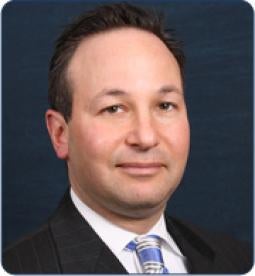On March 4, 2013, the Ninth Circuit affirmed the conviction and sentence of InterMune founder Scott Harkonen based upon a fraudulent press release that misrepresented the results of a clinical trial in the off-label use of the drug Actimmune to treat the fatal lung disease idiopathic pulmonary fibrosis (IPF). A jury convicted Mr. Harkonen of wire fraud based upon the press release, and the district court sentenced him to three years’ probation and a $20,000 fine. (He also was excluded from participating in federal health care programs for five years, and has challenged that determination with a lawsuit of his own).
Giving great deference to the jury verdict, the Court of Appeals (in an unpublished opinion) rejected Harkonen’s First Amendment challenge to his conviction, finding that there were sufficient facts to support the jury’s findings that the press release misrepresented the trial results, that Harkonen knew the data was misrepresented and had a specific intent to defraud, and that the press release was at least “capable” of influencing doctors to prescribe Actimmune. Accordingly, the court found, Harkonen was not engaged in a “genuine” scientific debate, as he had tried to argue. In sum, because the jury found the press release was fraudulent, and “[t]he First Amendment does not protect fraudulent speech,” the court rejected Harkonen’s First Amendment challenge to his conviction.
In the more interesting part of its decision, the court also rejected the government’s appeal of Harkonen’s three-year sentence. In the sentencing proceedings, the government sought a much harsher sentence based upon calculations of actual loss and intended loss that rested upon assumptions that doctors relied upon the press release and were fooled into prescribing a worthless drug for their patients. The district court rejected the government’s initial sentencing theory, crediting evidence from the defense that some IPF patients apparently did derive some benefit from the use discussed in the press release and noting that the government did not identify a single victim who suffered a financial loss, false hope for medical improvement or any other harm caused by the press release. However, the court gave the government a second chance to articulate a loss theory, adjourning the hearing to provide for supplemental briefing. When the sentencing resumed, the district court rejected the government’s revised estimates of intended loss as inherently speculative given the wide range between $50,000 and $310 million that the government proffered. The court also rejected the government’s actual loss theory, finding it speculative that sales would have declined if the press release had been truthful, which assumed that doctors relied upon the “hype” and not the actual data from the IPF trial, which did contain some support for that off-label use. The government also produced an affidavit from an IPF patient alleging that she was not helped and in fact was harmed by the drug, but the defense neutralized that evidence with expert testimony that this alleged victim’s condition was stabilized by the drug, without significant side effects, enabling her to survive long enough to qualify for a lung transplant. Additionally, the government conceded that it had no evidence that any of the 200 patients providing victim impact statements suffered any actual harm. Accordingly, the sentencing court rejected a “vulnerable victim” enhancement in the absence of proof of actual loss.
The Ninth Circuit’s opinion affirming Harkonen’s three-year sentence is not itself especially illuminating, with the court merely deferring to the district court’s finding that the government did not meet its burden of proving intended or actual loss by a preponderance of the evidence. What is significant, however, is a circuit court putting its imprimatur on a district court putting the government to its proof in the context of a large-scale pharmaceutical marketing fraud case typical of what the Department of Justice has vigorously pursued over the past decade. Although Harkonen himself was convicted of wire fraud, his case exposes the challenges the government faces to meet its burden of proving loss in criminal misbranding cases and civil False Claims Act cases based upon a theory of off-label promotion of a mass-marketed drug.



 i
i

